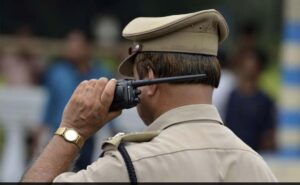
The UK is facing a “smouldering” terror threat level with children as young as 10 accessing extreme online material, one of the country’s most senior counter-terrorism officers has warned.
Deputy assistant commissioner Vicki Evans, senior national co-ordinator for Counter Terrorism Policing, said there was a “conveyor belt of young people” being affected by extreme online content – some of whom could go on to commit “horrific acts”.
Police and security services have stopped 43 late-stage terror plots since 2017, three of which were in the past year – with some of these being “goal line saves”.
The official terrorism threat level in the UK is substantial, meaning an attempted attack is likely.
Counter Terrorism Policing is a national network across UK police services set up to prevent and investigate terrorism.
DAC Evans of the Metropolitan Police, speaking at Scotland Yard after taking on the national role this year, warned that the search histories it was reviewing showed “horrific material” which was being accessed “readily and easily online”.
She said this includes violent, misogynistic, and racist content, as well as extreme pornography, material relating to school massacres and “incel“ culture.
This “pick and mix of horror” was sometimes coupled with terrorist material, with a continuing threat from “self-initiated terrorists” radicalised online.
“These sort of grotesque fascinations with violence and harmful views that we’re seeing are increasingly common,” she told reporters.
After the briefing, she told the BBC that technology companies had a responsibility to help counter-terror police “with what access is available to that sort of material”.
A “whole-system approach” was required, she said.
“We have some really deep, dark hot spots – some pockets where we cannot leave the activity and the groups unattended, and we need to continue to maintain our focus on them to keep the threat at bay.”
DAC Evans said of the three intended terrorist attacks officers had interrupted in the late-stage of planning in the last 12 months, two were Islamist plots and one was extreme right-wing.
Detectives had not expected the “volume and tempo” of activity seen, she explained.
Counter Terrorism Policing’s biggest caseload was still Islamist extremism, DAC Evans added.
Meanwhile, the fall of President Bashar al-Assad in Syria was a point of concern for counter-terrorism detectives, she said.
“History tells us that instability creates a space of extremism, violence and acts of terror.”
Organisations like the Islamic State “capitalise on chaos,” she warned.
She added that expressing support for the group that overthrew Assad’s regime – Hayat Tahrir al-Sham (HTS) – is still a criminal offence in this country, as it is a banned group.



